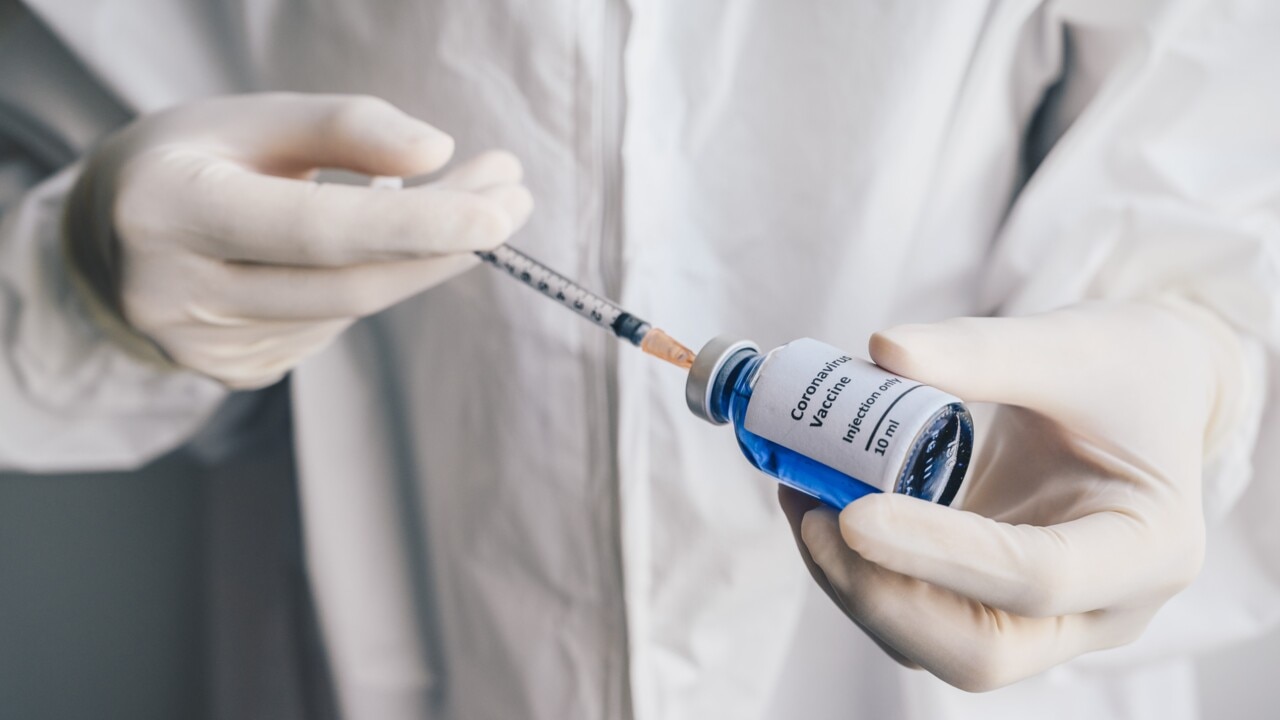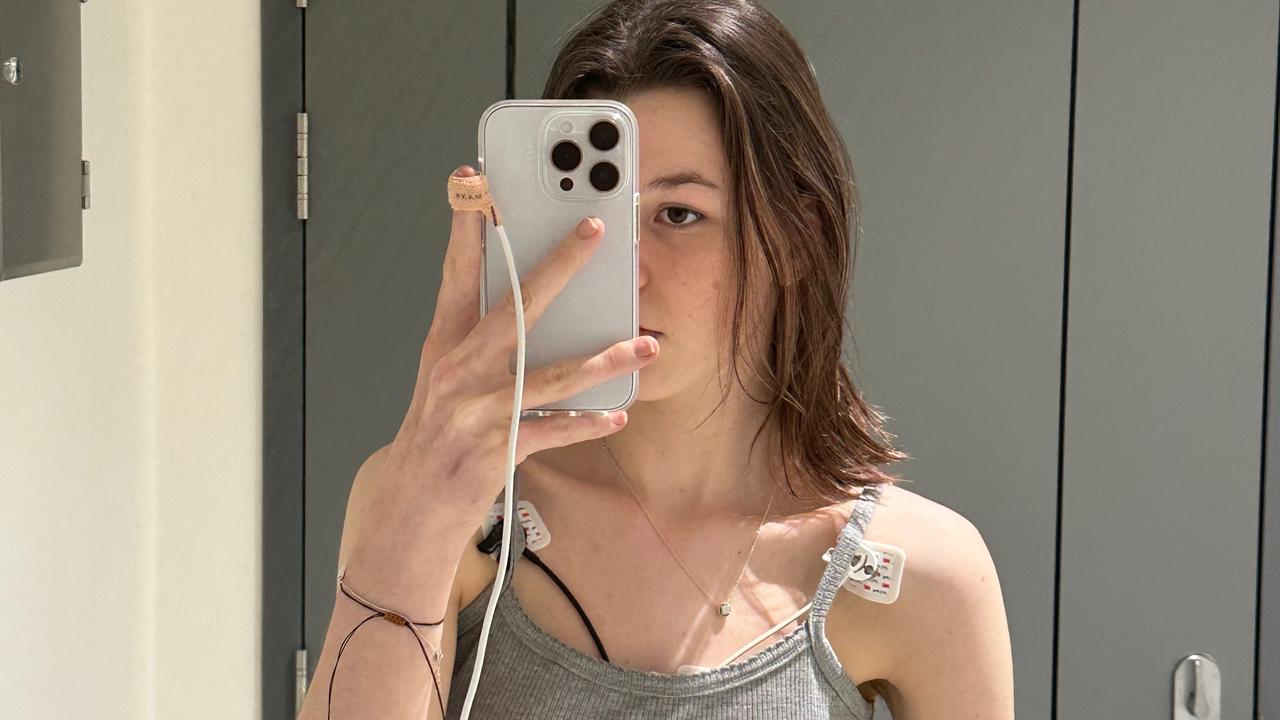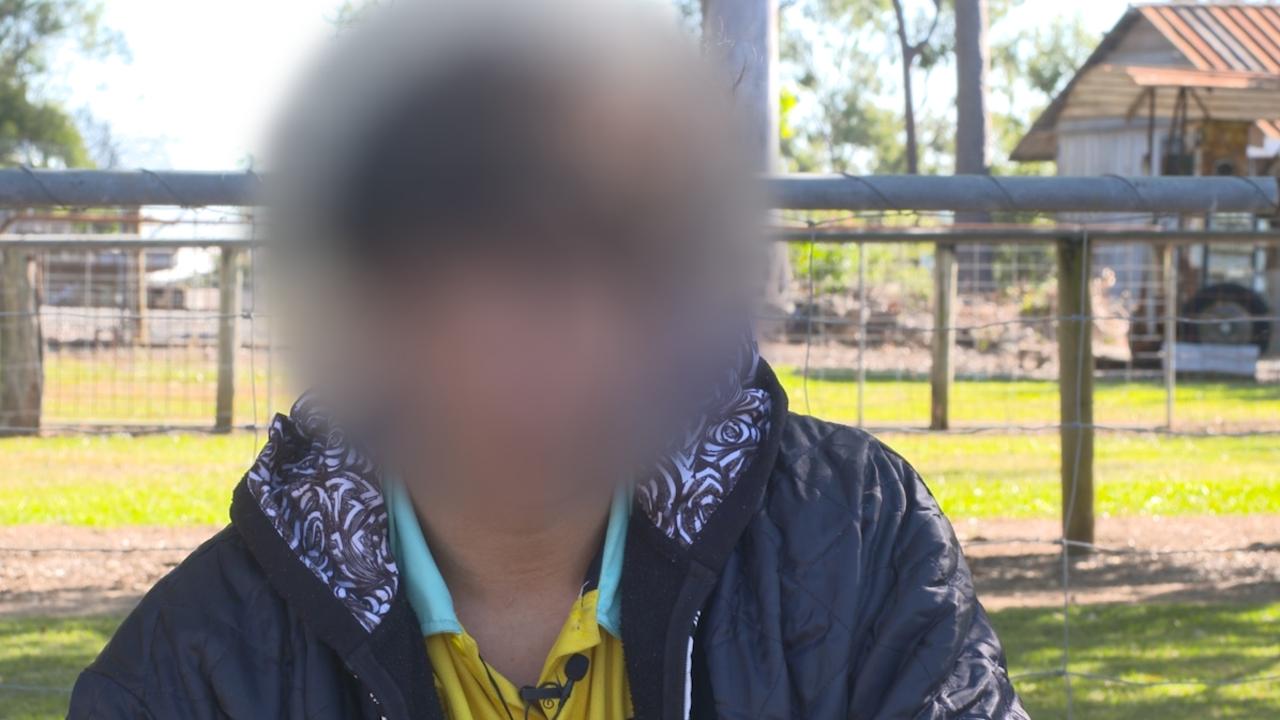Masks in high schools to remain in place after Transition Committee decides Delta risk too high
A majority of people want mandatory masks in high schools dumped immediately, an Advertiser poll shows – even as officials say they’ll stay.

South Australia’s Covid-19 restrictions have not eased, including the use of masks, due to the ongoing risk the Delta strain is posing interstate, the state’s coronavirus chief has said.
Authorities also made no changes to standing-up drinking.
However an Advertiser.com.au poll, below, has found strong support for scrapping masks for high schools, with more than 70 per cent of respondents at 3pm voting to remove them.
The transition committee on Tuesday debated public activity directions, such as crowd and gathering numbers, as well as border restrictions.
But bureaucrats recommended to Police Commissioner Grant Stevens, who authorises all changes as state Covid co-ordinator, that the current rules remain.
Speaking after Tuesday’s meeting, Mr Stevens said health advice was that the interstate risk was still too high to relax restrictions, with authorities watching a new Covid outbreak in Queensland.
Urging people to get vaccinated, he said planning was under way on what restrictions could ease when the state reached its 80 per cent target.
He rejected claims the committee was “flat footed” and was slow in developing plans for post 80 per cent vaccination.
“I think we’d be exposing ourselves to significant criticism if we shot from the hip, made announcements based on what we think might happen and then didn’t take into account the most current, up-to-date evidence that will inform our advice to make our decisions,” he said.
“The health advice indicated that we still have the same level of risk in South Australia and any significant changes in public activities will require a continued uptake of the vaccination rollout.

“So we are keenly watching just how many people in South Australia have been vaccinated, at least with that first dose. Because that will be the trigger for more relaxations in relation to the public activities direction.”
Business and community leaders last week called for mandatory mask use, which also includes public transport, to be reviewed.
The rule making it mandatory for high school students to wear masks came into force at the end of July when schools resumed following SA’s third lockdown, which went for seven days following an outbreak of Covid.
There have been no community cases since that outbreak.
Mr Stevens said the modelling would provide clear data on what restrictions could ease and when.
“I think that the capability of the health system to cope with Covid-19 being in South Australia is a key point in the considerations going forward,” he said.
“It will impact on what post 80 per cent (vaccination) looks like.
“It will impact on how we lift our borders, how we allow people to travel between South Australia and other jurisdictions.
“So, we are waiting for that clear advice from SA Health that they have a clear plan in place and have confidence that the health system will cope with whatever changes we make going forward.”
He said mask use had not been changed because it was seen as the best, and most simple, protection against Covid.
“It was included in our general conversation about public activities and the imposition that we do have in terms of mask wearing,” he said.
“Once again, it’s tied to the vaccine rollout, and the take-up on the vaccination process, because every South Australian who gets vaccinated changes the risk profile in South Australia in a positive way.
“There is evidence that shows that masks are very effective in minimising the spread of Covid-19 – they reduce the likelihood of you contracting it and they reduce the likelihood of you spreading it.
“Now whilst there may be a perception that we don’t have Covid here, the sad reality is we won’t know it’s here, possibly until it’s too late, so you are protecting yourselves on the community by wearing a mask, as required.”
He said he couldn’t imagine too many changes would occur when between 70 and 80 per cent of South Australians aged 16 and over were vaccinated.
Authorities have set an 80 per cent vaccination target, likely to be hit before Christmas, for bans to start easing. The state’s rollout, which has come under fire for being among the slowest in the country, has fully vaccinated almost half of SA adults, while two thirds have had one dose.
“I’d ask for people and different sectors within the business community in South Australia to continue to have patience,” Mr Stevens said.
“The work that is being done now is up-to-date, accurate modelling based on what’s happening in New South Wales, Victoria and ACT, assessing the impact of the changes they’re making based on their vaccination rates.
“It’s also about accurate modelling for South Australia, given … there was no evidence of Covid being here at the moment. So we are a different scenario to the eastern states.
“We want to make decisions that are based on accurate modelling … so that work is being done and we will provide clarity as soon as we possibly can. But we don’t want to make ill-conceived decisions that aren’t based on good evidence.”
He said when borders reopened, the state would get Covid cases but SA Health was ensuring hospitals could cope.
“This is not a simple linear solution that we’re looking for,” he said. “We are dealing with a range of variables that need to be taken into account to come up with a sound way for South Australia.
“Whether it be good luck or good planning we’ve done exceptionally well right throughout the entire process of dealing with COVID-19 and a global pandemic. We don’t want to drop the ball at the 11th hour.
“I think everybody wants to get back to pre-pandemic normality. We simply can’t forecast exactly when that’s going to occur and what the long-term implications of Covid-19 are – whether we see another variant emerge from another place in the world that impacts on the South Australian and Australian community more generally.
“It would be prudent for businesses to have contingencies in place to deal with the variables that might impact on them, going through 2022 and beyond, until we know that we are well and truly past Covid-19.”
There had been a “brief discussion” about the border exemption shambles.
He said authorities and public sector agencies were working to process a backlog of exemption applications as quickly as possible.
“But it’s important to remember that the reason we have a backlog is because SA Health are taking a very measured approach in terms of allowing people to enter South Australia, on the basis that we do have relatively relaxed, public activities restrictions. “
Confidential committee minutes show South Australia is unlikely to return to pre-Covid-19 business conditions even when high vaccination rates are reached.
The paper, revealed by The Advertiser, also shows a lockdown is the preferred response to any new outbreak before jab targets are met.
The official documents say chief public health officer Nicola Spurrier last month told the transition committee how industry must “pivot” business models rather than expect viability from rules similar to before the pandemic.
Under the existing direction high school students and teachers are required to wear a mask unless it’s “getting in the way of learning”.
Exemptions are for primary school students and students under the age of 12 or any student who attends a disability setting in primary school or secondary school.
Masks are not required outdoors at secondary schools.
Tens of thousands of South Australian teachers and preschool staff will get priority access to a Covid-19 vaccine without an appointment during the school holidays, to help boost jab rates.
The state government announced on September 20 that educators would be able to walk in to SA Health’s main hubs during the two-week break if they had not yet had their first dose of AstraZeneca or Pfizer.
It follows calls for teachers to be given priority access to the vaccine as frontline workers.
Educators are able to turn up at the Wayville, Elizabeth, Enfield or Noarlunga clinics with evidence of their employment.
There are 47,000 SA school and preschool teachers and staff.
Vaccination is not mandatory for department staff.
SA Health will on Tuesday expand its Highgate Pfizer vaccination clinic at Fullarton to anyone older than 16, which will include walk-ins and priority access for teachers and education staff.
The Australian Education Union last month warned its repeated requests to prioritise teachers behind health and frontline workers had been ignored after members were told to schedule appointments outside of school hours.
The union has called for school buildings to be audited for ventilation and accepts SA Health advice on masks.
“While wearing masks at school adds to the complexity of teachers’ work, the AEU supports and encourages following health advice to reduce the risk of the potential spread of Covid-19,” AEU SA president Lara Golding said.
A spokesman for the Education Department said it followed SA Health advice.
“If the expert health advice changes, we will update our policy accordingly,” the spokesman said.
The SA Secondary Principals Association said schools had complied with SA Health guidelines.
“Principals understand that it is the chief public health officer’s call and that her decisions are based on medical advice and mathematical modelling,” association chief executive Peter Mader said.

“Generally speaking, members have given high praise to students and staff for their observance of mask wearing.
“We said all along that the instruction to wear masks was akin to adding another item to the school’s uniform. This is how it has played out.”
Meanwhile, Southeast Queensland residents can now remove masks once seated in public – including students in the classroom.
Queensland Deputy Premier Steven Miles last Friday announced the easing of mask rules.
“Once you are seated you will be able to remove your mask.,” he said. “You don’t need to wait until you are eating or drinking.
“That also means that schoolchildren can remove their masks once they are seated.”



